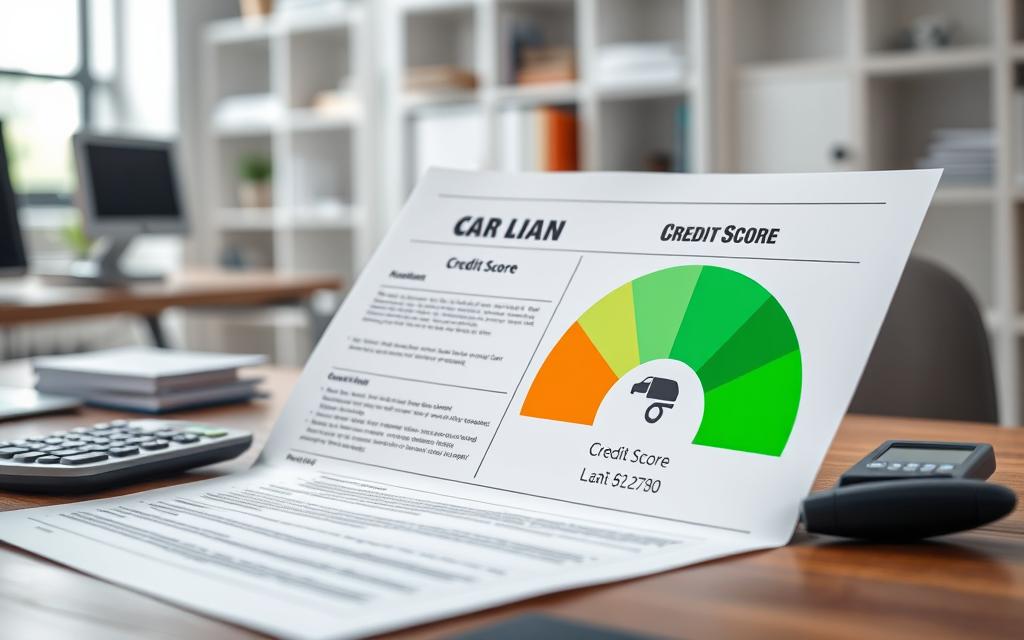When buying a car in Ontario, many people consider how they will pay for it. While some can afford to pay in full, many others need a car loan.
Long-term car financing is a common solution for those who cannot afford to pay the full amount upfront. This financing option allows buyers to drive away in their new vehicle while paying for it over an extended period.
Exploring the advantages and disadvantages of long-term car financing is crucial for making an informed decision. It’s essential to weigh the benefits against the drawbacks to determine if this financing option is right for you.
Understanding Long-Term Car Financing
With the average car price on the rise, understanding long-term car financing is crucial for buyers. Long-term car financing refers to extended payment plans that allow consumers to pay for their vehicles over an extended period, typically ranging from five to eight years.
What Qualifies as Long-Term Auto Financing?
Long-term auto financing is generally considered to be any car loan with a term longer than the traditional 48 or 60 months. Currently, many lenders offer vehicle loan benefits with terms of 72 months or more, making it easier for buyers to afford newer vehicles.
Current Trends in Car Loan Terms in the United States
Recent data shows a shift towards longer loan terms in the US car market. More buyers are opting for extended payment plans to manage their budgets effectively.
How Financing Terms Have Changed Over Decades
Over the decades, car financing terms have evolved significantly. From short-term loans to the current extended plans, the trend has been towards making vehicle ownership more accessible.
The Pros and Cons of Long-Term Car Financing: An Overview
The trend towards longer car loan terms prompts a closer look at the associated advantages and disadvantages. As consumers consider financing options for their next vehicle, understanding the implications of extended loan terms is crucial.
Key Benefits at a Glance
Long-term car financing offers several benefits, including lower monthly payments, making it easier for buyers to afford newer vehicles. This can be particularly advantageous for those who want to drive a more expensive car than they might otherwise be able to afford outright.
Additionally, longer financing terms can improve cash flow management by reducing the amount spent on car payments each month, potentially freeing up funds for other uses or investments.
Major Drawbacks to Consider
Despite the benefits, there are significant drawbacks to long-term car financing. One of the primary concerns is the higher total interest paid over the life of the loan. Borrowers may end up paying more in interest over an extended loan term, even if the monthly payments are lower.
Another risk is negative equity, where the loan balance exceeds the vehicle’s value, particularly in the early years of the loan. This can complicate plans to sell or trade the vehicle.
Who Benefits Most from Extended Terms
Certain individuals may find long-term car financing particularly beneficial, such as those who need to manage their monthly expenses carefully or who wish to drive a newer vehicle every few years. It’s essential to evaluate personal financial situations and goals to determine if an extended loan term is advantageous.
Pro: Lower Monthly Payments
Spreading the cost of a vehicle over an extended period can significantly reduce the financial burden of monthly car payments. This approach to car financing makes it easier for individuals to own a vehicle without straining their monthly budget.
How Payment Amounts Are Calculated
The calculation of monthly payments is based on the total amount financed, the interest rate, and the loan term. Longer loan terms result in smaller monthly payments because the total amount is spread over more months. For example, financing a $30,000 vehicle over 72 months instead of 48 months will lower the monthly payment amount.
Impact on Monthly Budget
Lower monthly car payments can have a significant impact on an individual’s monthly budget. By reducing the amount allocated to car payments, individuals can allocate more funds to other expenses or savings. This can improve overall financial stability and flexibility.
Comparing Payment Scenarios
When considering car financing options, it’s essential to compare different loan terms and their impact on monthly payments. For instance, a 60-month loan will have higher monthly payments compared to a 72-month loan for the same vehicle price. Understanding these differences is crucial for making informed decisions about vehicle purchase considerations.
By choosing a longer loan term, buyers can make their car financing more manageable, but they should also be aware of the total interest paid over the life of the loan.
Pro: Access to Higher-End Vehicles
One of the significant advantages of long-term car financing is the ability to drive away in a higher-end vehicle. With extended payment plans, the monthly financial burden is reduced, making luxury cars more accessible to a wider range of buyers.
Affording Premium Models
Long-term financing allows consumers to consider premium models that were previously out of their budget. By spreading the cost over a longer period, the monthly payments become more manageable, enabling buyers to afford higher-priced vehicles.
Luxury Features Within Reach
With the ability to afford more expensive cars, buyers can enjoy advanced luxury features such as heated seats, navigation systems, and premium sound systems. These features enhance the driving experience, making daily commutes more comfortable and enjoyable.
Balancing Wants vs. Needs
While long-term financing makes luxury vehicles more accessible, it’s essential to balance wants and needs. Buyers should consider their financial situation and prioritize their needs over their wants to avoid financial strain.
| Vehicle Type | Short-Term Financing (36 months) | Long-Term Financing (72 months) |
|---|---|---|
| Premium Sedan | $550/month | $350/month |
| Luxury SUV | $750/month | $450/month |
Pro: Improved Cash Flow Management
By opting for a longer car financing term, you can free up more money in your monthly budget. This financial flexibility is crucial for managing other expenses and achieving long-term financial goals.
Freeing Up Monthly Income
Long-term car financing reduces the amount you need to pay each month, thereby increasing your disposable income. This can be particularly beneficial for individuals with tight budgets or those looking to allocate funds to other important areas.
Investment Opportunities with Saved Capital
With more money available each month, you can explore various investment opportunities or save for future needs. This can potentially lead to increased financial stability and growth over time.
Emergency Fund Building Potential
The extra funds from lower monthly car payments can also be directed towards building an emergency fund. Having such a fund is essential for covering unexpected expenses and avoiding debt.
| Financial Metric | Short-Term Loan (48 months) | Long-Term Loan (84 months) |
|---|---|---|
| Monthly Payment | $450 | $275 |
| Total Interest Paid | $2,500 | $4,200 |
| Disposable Income | $0 | $175 |
Buying a new or nearly-new car with an 84-month term can also free up your income for other debt obligations, further enhancing your financial flexibility.
Pro: Easier Qualification Requirements
One of the most compelling reasons to consider long-term car financing is the relaxed qualification process. This aspect is particularly beneficial for individuals who may not have a perfect credit history or those who are purchasing a vehicle for the first time.
Debt-to-Income Ratio Benefits
Long-term financing can significantly improve an individual’s debt-to-income ratio by reducing the monthly payment amount. This makes it easier for lenders to approve loan applications since the borrower’s monthly financial burden is lower.
Approval Odds for Various Credit Profiles
Long-term car financing options are available to a wide range of credit profiles. Even those with less-than-ideal credit scores can qualify for financing due to the extended repayment period, which reduces the risk for lenders.
First-Time Buyer Advantages
For first-time buyers, long-term car financing can be particularly advantageous. It not only makes qualification easier but also provides an opportunity to build credit through timely payments. Credit-building opportunities are a significant benefit, as a positive payment history on a car loan can enhance one’s credit score over time.
| Credit Profile | Approval Odds with Short-Term Financing | Approval Odds with Long-Term Financing |
|---|---|---|
| Excellent Credit | High | Very High |
| Good Credit | Moderate to High | High |
| Poor Credit | Low | Moderate |
By considering long-term car financing, buyers can take advantage of easier qualification requirements, making it a viable option for a broader audience.
Con: Higher Total Interest Costs
Long-term auto loans can lead to significantly higher total interest paid compared to shorter loan terms. This is because the longer your loan, the more time interest has to accumulate, resulting in a higher total cost for the vehicle.
Interest Accumulation Over Time
When you extend the term of your car loan, your monthly payments may decrease, but the total interest paid over the life of the loan increases. For instance, a 72-month loan will typically cost more in interest than a 48-month loan for the same loan amount.
Comparing 48-Month vs. 72-Month Loans
To illustrate the impact of loan term on total interest costs, consider a $30,000 car loan at a 6% interest rate. On a 48-month loan, the total interest paid would be approximately $3,934. In contrast, a 72-month loan for the same amount and interest rate would result in total interest of around $6,044, a difference of $2,110.
Real-World Cost Examples
Let’s examine a real-world scenario: a borrower takes a $25,000 car loan at 7% interest. Over 48 months, the total interest paid is about $3,741. Extending the loan to 72 months increases the total interest to around $5,733, adding $1,992 to the total cost.
Impact of Interest Rates on Long-Term Financing
The interest rate on your car loan also plays a significant role in determining the total interest costs. Even a small difference in interest rates can result in substantial savings or additional costs over the life of the loan. For example, reducing the interest rate from 7% to 5% on a $25,000, 72-month loan can save around $1,400 in total interest.
Understanding these dynamics is crucial for making informed decisions about car financing options and avoiding the pitfalls of auto loan drawbacks.
Con: Extended Negative Equity Period
One major drawback of long-term car financing is the risk of owing more on the vehicle than its actual worth. This situation, known as negative equity, occurs when the car’s depreciation outpaces the loan balance reduction.
Understanding Depreciation Curves
Cars typically depreciate rapidly in the first few years. With long-term financing, the loan term may exceed the vehicle’s useful life, increasing the risk of negative equity.
The Underwater Loan Problem
When the loan balance exceeds the car’s value, it creates an “underwater” loan. This makes it challenging to sell or trade-in the vehicle without incurring additional costs.
Risks When Trading In or Selling
Negative equity can complicate transactions. If you need to sell or trade-in your vehicle, you may have to pay off the loan balance, which could be higher than the vehicle’s worth.
| Loan Term | Depreciation Rate | Risk of Negative Equity |
|---|---|---|
| 36 Months | 40% | Low |
| 60 Months | 50% | Moderate |
| 72 Months | 60% | High |
Understanding these risks is crucial when considering long-term car financing options. It’s essential to weigh the benefits against the potential drawbacks, such as extended negative equity periods.
Con: Reliability Concerns Beyond Warranty
One significant drawback of long-term car financing is the potential for reliability concerns once the manufacturer’s warranty expires. When you opt for extended payment plans, you may find yourself still making car payments on a vehicle that is no longer under warranty.
This situation can lead to increased financial stress due to the potential for costly repairs. Understanding the average vehicle warranty periods and the potential repair costs is crucial for making informed vehicle purchase considerations.
Average Vehicle Warranty Periods
Most new vehicles come with a manufacturer’s warranty that lasts for three to five years or a certain number of miles. For many consumers, this warranty period covers a significant portion of their loan term, but for those with longer financing terms, the warranty may expire before the loan is paid off.
Potential Repair Costs While Still Paying
Once the warranty expires, the vehicle owner becomes responsible for any repair costs. For vehicles that are older or have higher mileage, these costs can be substantial, adding to the overall expense of the vehicle beyond the initial purchase price.
Maintenance Considerations for Aging Vehicles
As vehicles age, regular maintenance becomes increasingly important to prevent major repairs. Owners should consider the potential maintenance costs and factor them into their budget when deciding on extended payment plans.
Con: Limited Financial Flexibility
One significant disadvantage of opting for long-term car financing is the potential limitation it imposes on your financial flexibility. When you commit to a long-term auto loan, you’re not just locking in monthly payments; you’re also affecting your ability to make other financial decisions or adjustments as circumstances change.
Challenges When Selling or Trading In
Being in a long-term financing agreement can complicate matters if you wish to sell or trade-in your vehicle. If the car’s value depreciates faster than the loan balance, you might find yourself in a situation known as negative equity or being “upside-down” on your loan. This can limit your options significantly, making it challenging to switch to a different vehicle without incurring additional financial burdens.
Impact on Future Vehicle Purchases
The financial implications of long-term car financing can also affect your ability to purchase another vehicle in the near future. With a significant portion of your budget committed to your current car loan, you might struggle to qualify for another loan or save for a new vehicle.
Life Changes and Long-Term Commitments
Life is unpredictable, and financial circumstances can change rapidly. A long-term car financing commitment can become particularly burdensome during times of financial strain or when life events, such as job loss or relocation, occur. It’s essential to consider these potential future scenarios when evaluating car financing options.
Making the Right Decision: Factors to Consider
When considering a long-term car loan, it’s crucial to evaluate your financial situation thoroughly. This assessment will help you determine whether the benefits of a prolonged financing term outweigh the drawbacks.
Evaluating Your Financial Situation
Start by examining your income, expenses, and savings to understand your financial health. Consider how a long-term car loan will affect your monthly budget and overall financial stability. A financing term comparison can help you decide between different loan options.
Vehicle Ownership Timeline Goals
Your plans for keeping the vehicle are also important. If you tend to keep cars for a long time, a longer loan might be acceptable. However, if you prefer to change vehicles frequently, a shorter loan term might be more suitable.
Alternative Financing Options
It’s also wise to explore alternative financing options. This includes considering the pros and cons of leasing versus buying, as well as the potential for refinancing your loan in the future.
Leasing vs. Buying Comparison
Leasing can offer lower monthly payments and the opportunity to drive a new car every few years. However, you won’t build equity in the vehicle. Buying, on the other hand, allows you to own the car outright once the loan is paid off, but the monthly payments are typically higher.
Refinancing Possibilities
If interest rates drop or your credit score improves, refinancing your car loan could save you money. Understanding the terms and conditions of refinancing is crucial to making an informed decision.
Ultimately, the decision to opt for a long-term car loan should be based on a careful evaluation of your financial situation, ownership goals, and the vehicle loan benefits that matter most to you.
Conclusion
When considering a vehicle purchase, understanding the implications of long-term car financing is crucial. A 72-month car loan can make it easier to afford the car you want with manageable monthly payments, but it’s essential to be aware of the higher interest costs and the potential for negative equity.
Throughout this article, we’ve explored the pros and cons of extended car loan terms, from lower monthly payments and access to higher-end vehicles to higher total interest costs and reliability concerns. By weighing these factors and considering your vehicle purchase considerations, you can make an informed decision that aligns with your financial situation and goals.
Ultimately, the key to successful long-term car financing is careful planning and consideration of your options. By evaluating your financial situation, vehicle ownership timeline goals, and alternative financing options, you can choose the best financing solution for your needs.


